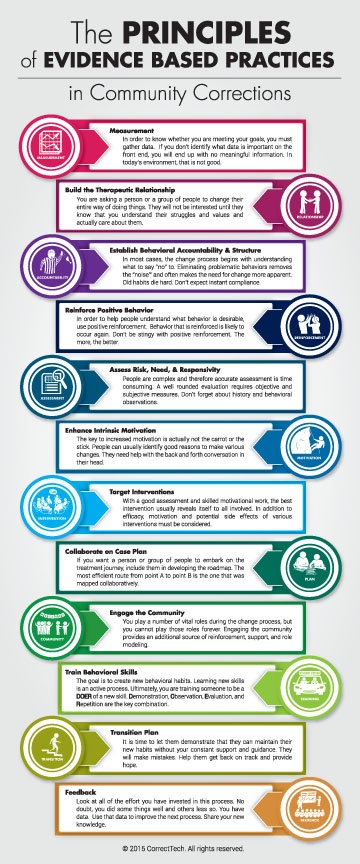- Home
- Software
- Support and Services
- Programs We Serve
- EBP
- Testimonials
- Blog
- About Us
- Resources
Look at all of the effort you have invested in this process. No doubt, you did some things well and others less so. You have data. Use that data to improve the next process. Share your new knowledge and use YOUR data to make some productive changes.
The needle on your gas gauge provides feedback; so, does your bank account statement. A teenager’s eye rolls are feedback. Scoreboards and speeding tickets provide a variety of valuable feedback. Feedback surrounds us, but sometimes when we need feedback the most, we cannot find it.
Community corrections contracts require directors to provide an annual report to oversight agencies. These annual reports include complex data about the results and trends of an agency’s yearly progress, achievements and outcomes. After sharing the report to the necessary overseers, what happens to that information? Do you share it with your frontline staff, the people whose performance gave you this data? Do you assess the successes and failures with each department?
People want and need feedback. Am I doing a good job? Was this program effective? Could our department be more efficient? We cannot get better without feedback. Where there is a goal, there had better be feedback.
Data analysis is not just for PowerPoint presentations and annual reports. Ultimately, predictive statistics (i.e., what correlates with success) should inform training, policies and employee feedback. Knowledge should not only be had but be used to effect change.
Make it Clear: People (offenders, employees, organizations) thrive on feedback. Without feedback, your staff may not know if they are helping or hurting progress towards your agency’s goals. Give transparent and straightforward feedback. Don’t make your staff do the grunt work of interpreting all of that complex data from the past year. Give discoveries and conclusions to inform your staff.
Make it Matter: Feedback, accompanied by a specific goal, leads to increased motivation. Generating reports and having the data doesn’t mean anything unless you interpret your data and react to your findings. Set agency goals and encourage staff to set personal goals as well. As we like to say at CorrectTech, set goals and achieve! We strive to help agencies measure what matters so that frontline staff can make a bigger impact in their clients’ lives.
Make it Change: Organizational feedback should be reflected in the revision of policies and procedures. Feedback should advise change in trainings, policies, programs and procedures in your agency. Identify weaknesses and provide feedback to influence positive change towards a better outcome. Provide feedback on positives with your staff the same as you would with positive reinforcements with your clients to encourage more of these positive outcomes. Modeling such behavior in a management system impacts how case managers interact and work to motivate their clients.
We've developed our software to help you weed through and analyze your mountains of complex data to find the gem of feedback that makes EBP implementation easier to tackle and sustain. Click on our software icons below to see how we've implemented the feedback principle in our software.

CorrectTech offers integrated software and support services for residential, treatment, reentry, juvenile and probation programs. Our community corrections software was designed by community corrections professionals to guide organizations toward a powerful EBP implementation, relieve them of strenuous paperwork and manual processes, and enable them to focus on what matters - people! To request more information or schedule a demonstration of our software, click here.
CorrectTech, Inc.
info@correcttech.com
Copyright 2018 CorrectTech, Inc. All Rights Reserved.